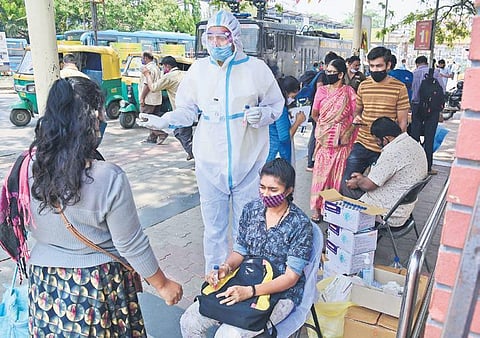

NEW DELHI: Experts engaged in genome analysis say that one of the reasons behind the surge in the Covid-19 cases could be increasing mutant variants in many cities, especially in high-burden states.
On the strains, such as the double and triple mutant detected in India, they said all are the same variant of the virus, and the available vaccines are effective on them.
National Institute of Biomedical Genomics (NIBG) director Soumitra Das on Friday said double mutant and triple mutant terms are colloquial and both refer to the same variant B.1.617. “In fact, these variants harbour 15 lineage defining mutations. B.1.617, initially termed double mutant, has three new spike protein mutations. Double and triple mutants are one and the same.
"Double and triple mutants are over-lapping terms and have been used differentially in a different context,” he said. The NIBG in Kalyani is one of the 10 laboratories across the country involved in the genome sequencing of the coronavirus. Director of National Centre for Disease Control Sujeet Kumar Singh said the second wave could be partly because of the increasing prevalence of mutant variants in cities, especially in Delhi Maharashtra and Punjab.
“There are scenarios which we are observing. In Punjab, we found that the UK variant was the primary variant. In Maharashtra, B.1.617 (double mutant) variant in proportions over 50 per cent in many cities,” Singh said. “The scenario is still unfolding but we have seen a rise from 28 per cent of samples having the UK variant in the second week of March to 50 per cent in the last week of March. If we try to correlate the surge in Delhi, I think it directly correlates with the type of variant which we are observing,” he added.